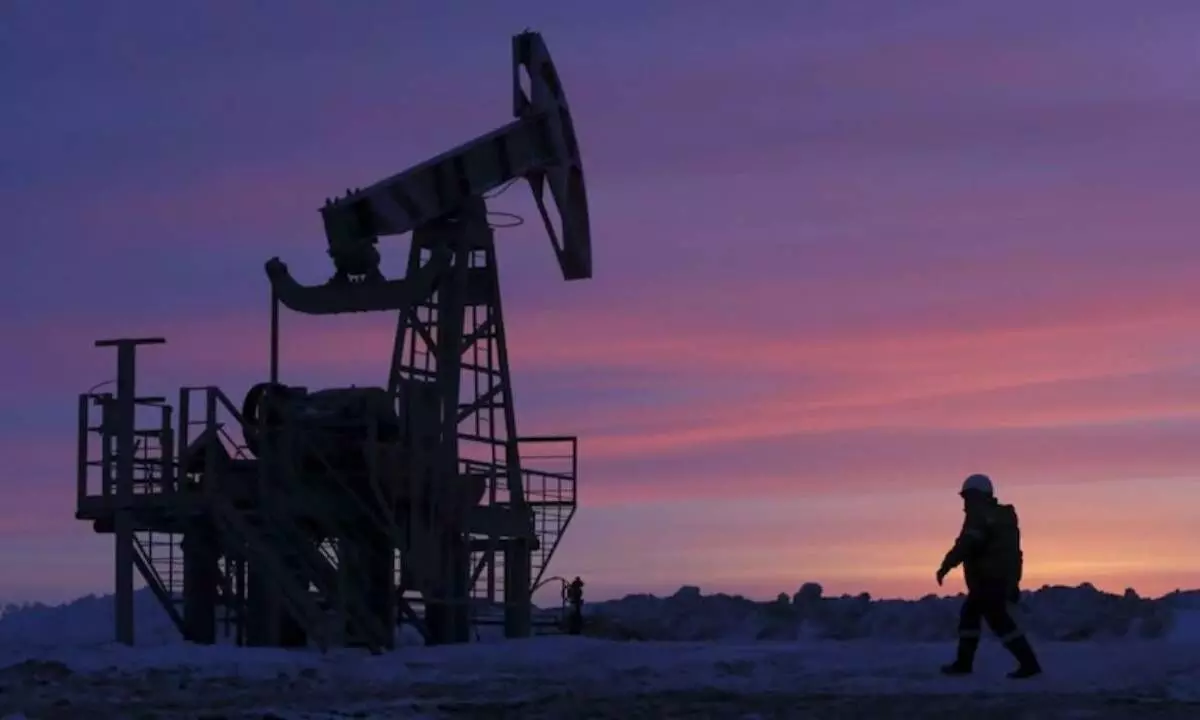Oil prices fall ahead of expected US interest rate hike
Brent crude futures for August were down 50 cents, or 0.4%, at $120.67 a barrel as of 1357 GMT, having fallen as low as $119.40 per barrel earlier in the session.
image for illustrative purpose

Brent crude futures for August were down 50 cents, or 0.4%, at $120.67 a barrel as of 1357 GMT, having fallen as low as $119.40 per barrel earlier in the session.
U.S. West Texas Intermediate crude for July fell 71 cents, or 0.6%, to $118.22 a barrel, having fallen to $116.99/bbl earlier in the session.
"Oil markets are seeing uncertainty over what central banks do next and how that impacts oil demand," said UBS analyst Giovanni Staunovo.
Surging inflation has led investors and oil traders to brace for a big move by the Fed this week: a 75 basis points increase, which would be the largest U.S. interest rate hike in 28 years.
Stronger monetary policy tightening could "pave the way for recession-induced demand destruction," PVM analyst Stephen Brennock said.
The European Central Bank promised fresh support and a new tool on Wednesday to temper a market rout that has fanned fears of a new debt crisis on the euro area's southern rim but appears to have disappointed investors looking for bolder steps.
Adding to demand woes, China's latest COVID outbreak has raised fears of a new phase of lockdowns.
Higher oil prices and weakening economic forecasts are dimming futures demand prospects, the International Energy Agency said on Wednesday.
But persistent concerns about tight supply meant oil prices were still holding near $120 a barrel.
The Organization of the Petroleum Exporting Countries and its allies, known as OPEC+, are struggling to reach their monthly crude production quotas, recently hit by a political crisis that has reduced Libya's output.
"Because OPEC production is still falling noticeably short of the announced level, this would result in a supply deficit of around 1.5 million barrels per day on the oil market in the second half of the year," said Carsten Fritsch, commodity analyst at Commerzbank in Frankfurt.
Oil prices gained some support from tight gasoline supply. U.S. President Joe Biden told oil companies to explain why they were not putting more gasoline into the market.

